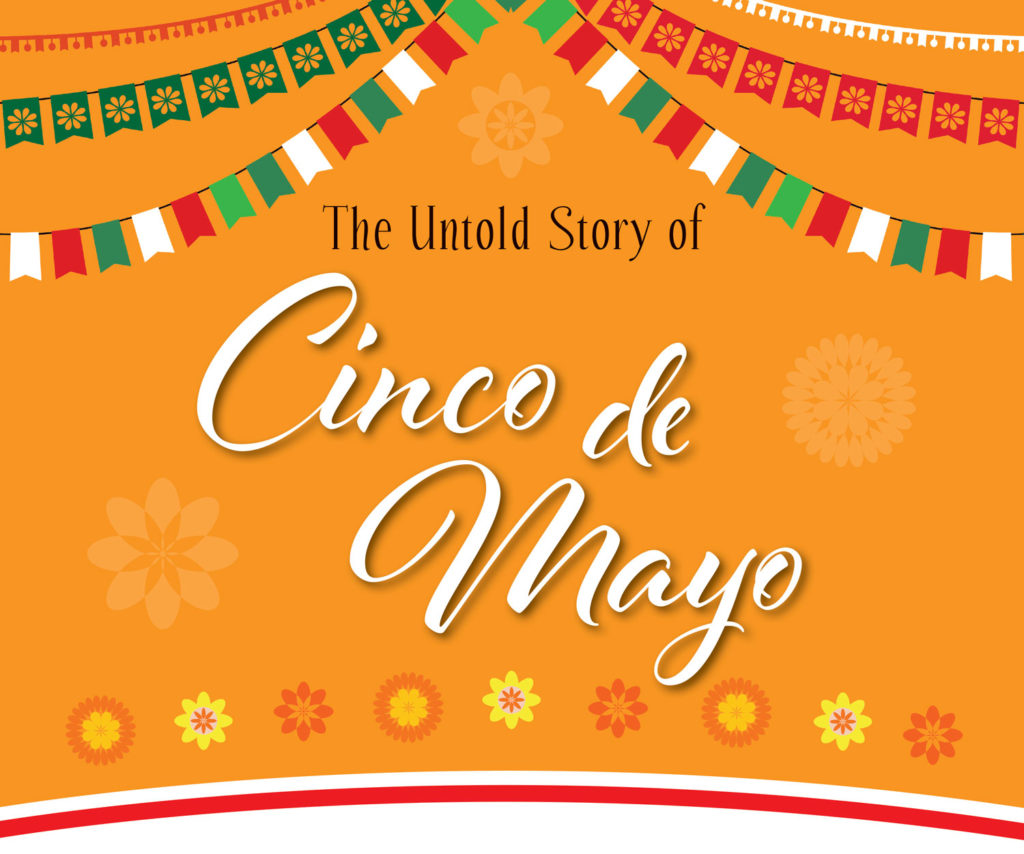The Untold Story of Cinco de Mayo
By Chelsea Pyne

Last year’s Cinco de Mayo was celebrated in the company of my European friends. My love of Mexican food–and any reason to make margaritas–called for a fiesta at my home abroad. But being a jokester, I wanted to play a little trick on my guests. Their nationalities being Dutch, German, and Swiss. The German, my boyfriend, has never been to America nor Mexico, so he knew very little history around the holiday. My best friend (the Hollander) was too smart to fall for my tricks, so I planned to convince the Swiss and German of a new history around Cinco de Mayo.
It just happens that all three pronounced “Mayo” with a hard A as in the condiment “May-o,” not as the typical Mexican/American way of “My-o.” I told my best friend the plan. I would make a casual remark about the history regarding Cinco de Mayo. One of the two men would take the bait and infer more about it. She would nod in agreement with my explanations as if it were common knowledge.
And so it began…“It really is a strange holiday to be celebrating,” I started. The comment took no time to get noticed. The German replied, “I don’t know for what reason we celebrate.” Then the Swiss followed up, “I know that Cinco means five but I have no idea about Mayo.”
Luckily for me, I kept my poker face without fail. However, I will never forget that remark, as it still cracks me up.
“No, no,” I said. “Listen… the story behind Cinco de Mayo is to recognize the lost Navy members who were bringing supplies to troops in Hawaii. It was during World War II after the attack on Pearl Harbor. The troops needed food and the most readily available calorie-dense food in production at the time was mayonnaise. So the US exported a huge shipment for our troops leaving from the Pacific coast of Mexico. It was too risky leaving out of San Francisco, so they tried to sneak it out from south of the border.
Unfortunately, the Japanese had submarines all throughout the waters and sunk the ship before it arrived to Hawaii. In remembrance of the lost ship, sailors, and mayonnaise…we now celebrate Cinco de Mayo.”
They both looked to me in amazement. “I’ve really never heard that story before!” the Swiss exclaimed. That is when my friend and I lost it.
But the German and Swiss are not alone, I am sure many are not familiar with the true reason behind the holiday. Cinco de Mayo commemorates a single battle: the Mexican army’s May 5, 1862 victory over France at the Battle of Puebla. This was during the Franco-Mexican War after Britain and Spain removed their reigns on Mexico, the French stepped in to take over.
Cinco de Mayo is also known as the Battle of Puebla Day. For many Mexicans, May 5th is a day like any other. It is not a federal holiday, so offices, banks, and stores remain open. However, in the United States, Cinco de Mayo has evolved into a commemoration of Mexican culture and heritage.
To be clear, Independence Day in Mexico (Día de la Independencia) is commemorated on September 16th–which was established over 50 years before Cinco de Mayo. They are not the same. Mexicans made a call to arms in 1810 against the Spanish colonial government, and this is a true holiday in which they celebrate.
However, the success at the Battle of Puebla represented a great symbolic victory for the Mexican government and bolstered the resistance movement. The French sent 6,000 soldiers to attack the 2,000 Mexicans in Puebla. As fate would have it, the battle lasted from sunup to sundown and the home team held their own. Yes, the vastly underequipped Mexicans fended off the French troops. After losing 500 soldiers, the French retreated and the underdogs claimed victory, with only around 100 deaths of their own. In 1867, thanks in part to military support and political pressure from the US–which was finally in a position to aid our southern neighbor after the end of the Civil War–France fully withdrew.
For that reason, Cinco de Mayo holds a sweet spot in history. It was a time of the passionate underdog standing up for what he believed in. It was a time of strength, community, and courage. It was not a ship full of Mayonnaise that now rests on the bottom of the ocean.
And for that, on Tuesday, May 5th we can cheers: Arriba, Abajo, Al Centro, Y Pa’dentro.

